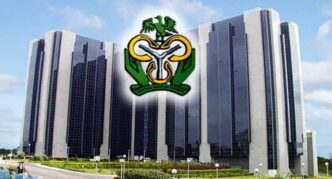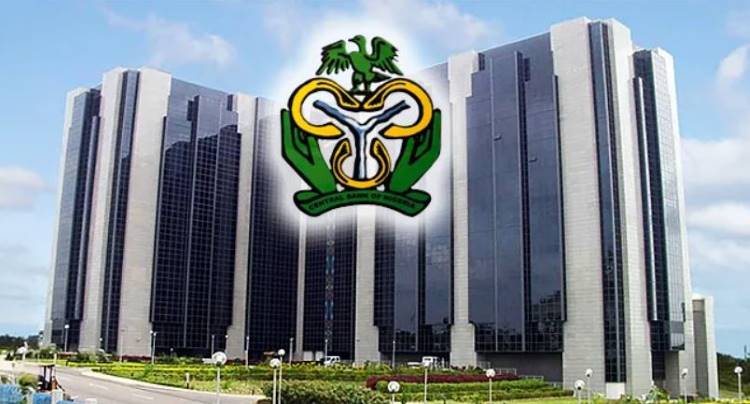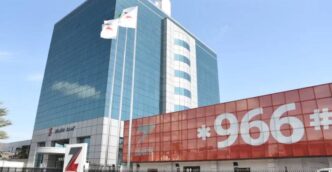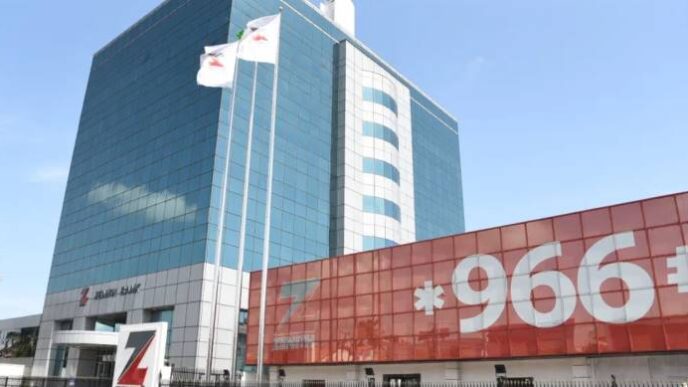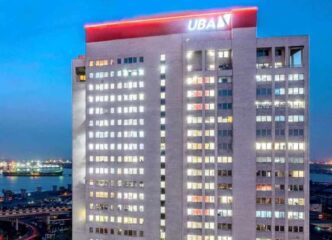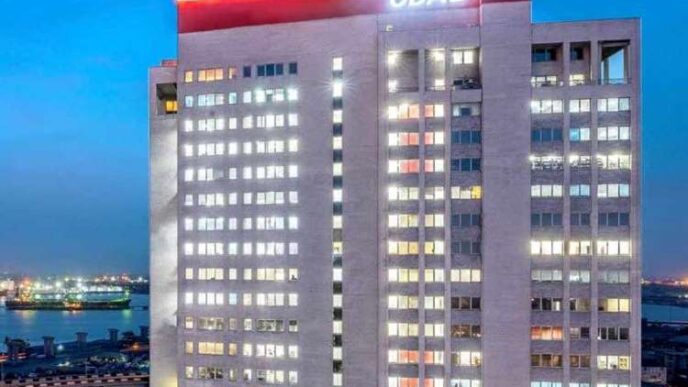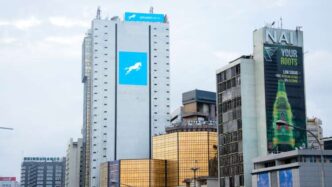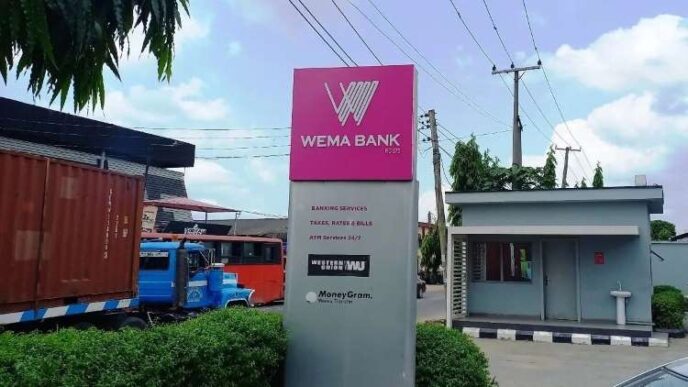… AccessCorp $304 m, FirstHoldco $887 m, FidelityBank $134 m, FCMB $296 m, ZenithBank $1.6bn
Renaissance Capital has estimated United Bank for Africa, UBA PLC regulatory forbearance exposure at $282 million, following a new directive by the Central Bank of Nigeria (CBN) suspending dividend payments by banks under regulatory forbearance.
The investment firm named UBA alongside Access Holdings, First Bank (First HoldCo), First City Monument Bank (FCMB), and Zenith Bank as being affected by the CBN’s sweeping order, which aims to strengthen lenders’ capital buffers and provisioning.
The firm also pegged ACCESSCORP at $304 million, FIRSTHOLDCO $887 million, FIDELITYBK $134 million, FCMB $296 million, and ZENITHBANK $1.6 billion.
During times of economic strain or financial instability, governments or regulatory agencies often resort to regulatory forbearance — a temporary easing of financial regulations — to help distressed banks or businesses meet their obligations under more manageable terms and conditions.
The CBN, on Friday, directed all banks benefiting from forbearance measures to halt dividend distributions, defer management bonuses, and suspend investments in offshore ventures until they fully provision for risk exposures and resolve breaches of single obligor limits.
This suspension will remain in force until affected banks fully provide for their forbearance exposures and gradually phase out reliance on such regulatory leniency.
Renaissance Capital noted that it had earlier predicted an end to regulatory forbearance, and now expects banks with sizable exposures—including UBA—to pause both interim and final dividends until adequate provisioning is achieved.
In a new report released Monday and titled “Nigerian Banks, Cash is King,” Renaissance Capital confirmed it had earlier anticipated this move. “Six months ago, we predicted the end of regulatory forbearance,” the firm wrote, adding that the latest CBN directive now compels banks to boost their provisions and reinforce their capital positions.
The investment firm welcomed the CBN’s policy shift, describing it as a step in the right direction, but also recommended that the regulator reduce the cash reserve ratio (CRR) to help ease liquidity constraints facing lenders.
“As a result, we expect interim and final dividend payments for banks under our coverage with significant exposure to be paused until they have made adequate provisioning for their forbearance exposure,” Renaissance Capital said.
In its estimates, Renaissance Capital identified ZENITHBANK, FIRSTBANK, and ACCESSBANK as having sizable forbearance exposures of 23%, 14%, and 4% of their gross loan portfolios, respectively.
“Similarly, in line with our estimates, FIDELITYBK and FCMB, the two top tier II banks, have forbearance exposures of 10% and 8% of their gross loan books, respectively.
“In contrast, STANBIC and GTCO have 0% forbearance exposure in their gross loans, based on our estimates. GTCO adequately provisioned and wrote off its forbearance exposures last year. Of note, our estimates for FIDELITYBK, FCMB, ACCESSCORP, GTCO, and UBA are based on recent engagements with management. However, our ZENITHBANK estimates are based on our last engagement with management in December 2024.
“In absolute terms, we estimate regulatory forbearance exposures at $304 million, $887 million, $134 million, $296 million, $282 million, and $1.6 billion for ACCESSCORP, FIRSTHOLDCO, FCMB, FIDELITYBK, UBA, and ZENITHBANK, respectively.”
The firm also raised concerns about potential breaches of the single obligor limit:
“Based on our forbearance exposure estimates, we believe FIRSTHOLDCO, FIDELITYBK and ZENITHBANK could breach its SOL due to its estimated forbearance exposure. While forbearance exposures are not always tied to a single client, we believe they are predominantly concentrated in loans to a major Oil & Gas (O&G) counterparty (particularly in the upstream and refinery subsectors).”
However, following discussions with FCMB, Renaissance Capital noted that the bank remains within regulatory bounds:
“Renaissance Capital, following its engagement with FCMB, said the group remains compliant with its SOL, as its largest forbearance loan to a single client stands at $68.1 million, below its SOL threshold of $94 million.”
Renaissance Capital also conducted a fresh analysis of the FY24 and Q1 2025 cash profitability of Nigerian banks under its coverage, following the release of financial statements and the CBN’s directive.
“We believe investors should focus on cash profits rather than the accounting profits reported by Nigerian banks. The reported accounting profits include one-off items that are largely unrealised in cash and fail to reflect the adverse effects of regulatory forbearances,” the firm said.
“Regulatory forbearances do not reflect in accounting profit because forbearance loans are predominantly classified as Stage 2 loans, and we observe a negative correlation between banks’ forbearance exposures and their cash profits (i.e., the higher the forbearance exposure, the lower the cash profits).
“Under accounting standards, Interest Income on Stage 2 loans is recognised in the P&L when due, without a corresponding cash inflow. However, when Interest Income is not received on time, it indicates potential loan default and raises asset quality concerns.
“The Stage 2 loan accounting reporting framework is why we believe accounting profits do not fully capture the negative impact of regulatory forbearances.”
As dividend payments must be backed by actual cash, the firm added, cash profits are a more dependable indicator of dividend capacity than accounting profits:
“Furthermore, since dividend payouts require actual cash, cash profits provide a more reliable basis for forecasting dividends than accounting profits. Among our coverage banks, three reported positive cash profits in FY24 (FIRSTHOLDCO, GTCO, and UBA), while two (ACCESSCORP and ZENITHBANK) recorded negative cash profits.
“These cash profit figures explain why final dividend payouts fell below expectations for some banks and exceeded expectations for others. In particular, ACCESSCORP’s negative cash profits appear to be driven by its forbearance exposure, as Interest Income received (N1.9 trillion per cash flow statements) fell N1.5 trillion short of Interest Income earned (N3.5 trillion per income statements)—the result of investment in its pan African expansion.
“GTCO and UBA should maintain positive cash profits given their negligible forbearance exposures (0% and 5%, respectively). For ZENITHBANK, management indicates the assets underlying its forbearance exposure are now performing, supporting our expectation of continued positive cash profits.
“Conversely, ACCESSCORP’s cash profits should improve but remain negative due to its Interest Expenses paid, which we expect to exceed incurred Interest Expenses by N1.9 trillion. Similarly, we anticipate FIRSTHOLDCO will report negative cash profits in H1 2025 due to its single obligor NPL, with an estimated N723.9 billion gap between Interest Income received and earned.”
Looking ahead, Renaissance Capital expects dividend restrictions to remain for several major banks due to ongoing forbearance and compliance issues.
“Specifically, we anticipate that the banking arms of ACCESSCORP, FIRSTHOLDCO and ZENITHBANK to potentially resume dividend payments in 2028. As such, we expect dividend payments henceforth to come from the non banking subsidiaries of the above mentioned Groups,” the firm said.
“Given that majority of these Groups’ income is primarily from their banking business, we do not see any substantial dividend payments from their non banking subsidiaries.
“For UBA, we maintain a more optimistic outlook given its strong cash profit position and manageable forbearance exposure (6% of gross loans). We expect the Group to resume dividend payments by 2026 at the latest.
“GTCO remains the standout case, as we do not anticipate any pause in its dividend payments this year or in the foreseeable future. The bank’s proactive provisioning for its forbearance exposure positions it favourably to maintain its dividend track record.”
The report warned that dividend suspension could depress share prices for affected banks and potentially force some to raise capital under less favourable conditions.
“Among our coverage, ACCESSCORP and ZENITHBANK have already completed their recapitalisation exercises and thus won’t be adversely impacted by this development. Similarly, GTCO and STANBIC should remain unaffected as we expect both Groups to continue their dividend payments uninterrupted,” the firm said.
“We do not anticipate the dividend pause impacting FIRSTHOLDCO’s recapitalisation efforts either, as dividend payments have minimal effect on its share price given its base of wealthy shareholders who can provide market support.
“We, however, see a potential adverse impact for UBA, FIDELITYBANK, and FCMB, as these banks still need to raise additional capital to meet the CBN’s N500 billion minimum paid in capital requirement for internationally licensed banks.
“Given our expectation of an adverse market reaction, these institutions may be forced to issue additional shares at lower valuations to meet regulatory requirements.
“Consequently, we provide our estimates for the projected total shares outstanding upon completion of these banks’ recapitalisation exercises below, based on multiple market valuation scenarios and their respective capital shortfalls. Specifically, FIDELITYBANK, FCMB, and UBA still need to raise N194.4 billion, N233.8 billion, and N144.8 billion, respectively, to meet regulatory requirements.”
While Renaissance Capital has turned bearish on Nigerian banks’ short-term outlook, it maintains a bullish stance for the long term, with the near-term caution expected to last one to two years and optimism prevailing beyond that.

